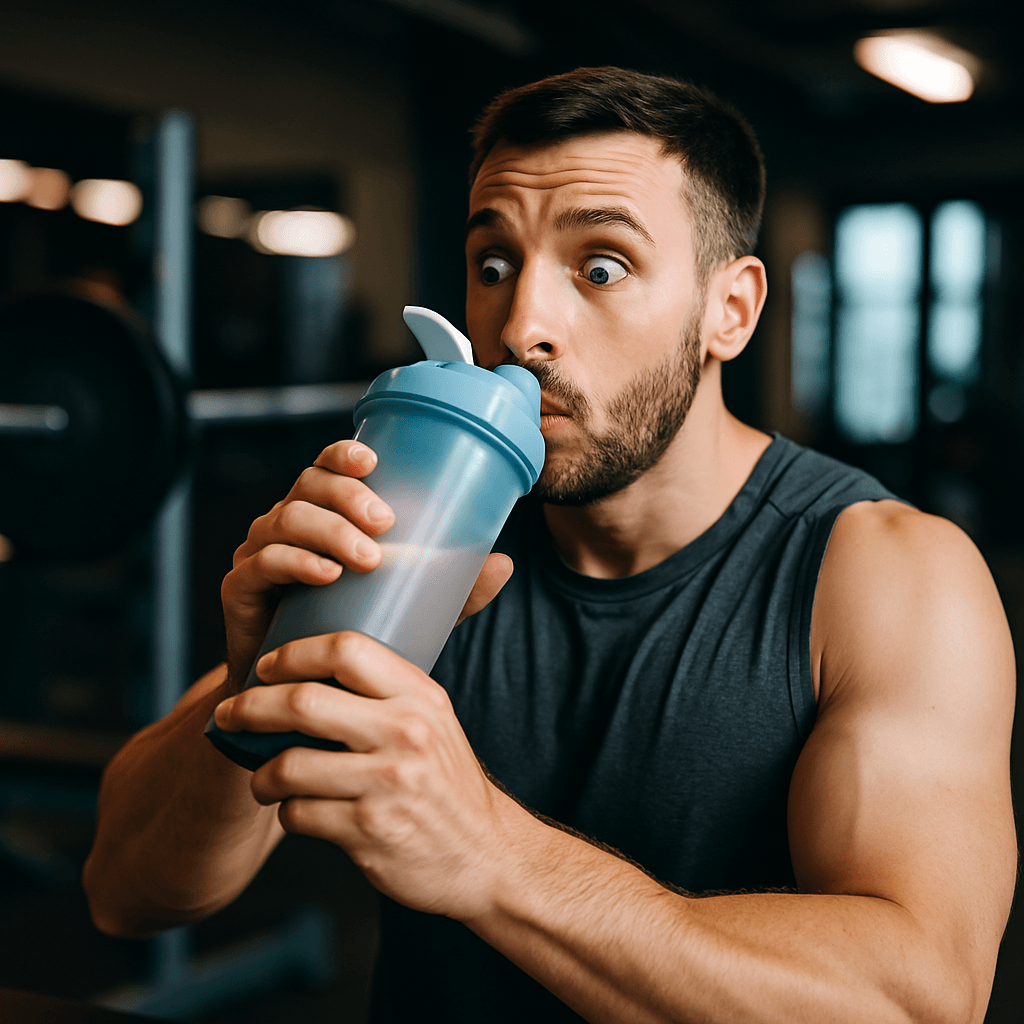FREE SHIPPING OVER $50
Lifting Heavy, Seeing No Gains? This Is How Much Protein You Really Need
You’ve been consistent in the gym. You’re lifting heavier each week, grinding through your workouts, and pushing your limits. But the mirror and the scale aren’t showing much progress. So what gives?
If this sounds familiar, there’s a good chance your protein intake is the missing link. While training hard is essential for muscle growth, recovery, and performance, your body also needs the right nutrition to support those efforts—and protein plays the leading role.
Let’s break down how much protein you really need, why it matters, and how to dial it in for better results, especially if you’re training hard and lifting heavy.

The Role of Protein in Muscle Growth
Protein isn’t just for bodybuilders. It’s an essential macronutrient that helps repair muscle tissue, supports hormone production, and strengthens your immune system. When you train, especially with weights, you create tiny tears in your muscle fibers. Protein provides the amino acids your body uses to repair and build back those fibers—stronger and larger than before.
Without enough protein, your muscles don’t fully recover, and that means no growth. Worse, you could actually lose muscle over time—even if you’re lifting regularly.
How Much Protein Do You Really Need?
The old-school recommendation of 0.8 grams of protein per kilogram of body weight might be enough to survive, but it’s nowhere near sufficient for someone who trains hard. If you’re working out consistently—whether it’s weightlifting, CrossFit, HIIT, or endurance training—you need more.
General Protein Guidelines for Active Adults:
- Moderate training (3-4 days/week): 1.4 – 1.6 grams per kg of body weight
- Intense strength training (4-6 days/week): 1.6 – 2.2 grams per kg
- Cutting/fat loss phase: Closer to 2.2 grams per kg (to preserve lean mass)
- In pounds: That’s about 0.7 to 1 gram of protein per pound of body weight
So if you weigh 160 pounds and lift 5 times a week, you’d aim for around 130 to 160 grams of protein daily.
Signs You’re Not Getting Enough Protein
If you’re lifting heavy but not seeing results, protein might be the bottleneck. Here are some telltale signs:
- You’re sore for days after workouts
- Your strength plateaus or declines
- You’re not gaining muscle (or losing it)
- You constantly feel fatigued
- You’re always hungry despite eating “a lot”
These could all point to inadequate recovery and protein intake. Your body simply doesn’t have the building blocks it needs to rebuild and grow.
Protein Timing: Does It Matter?
The short answer? Yes—but total intake matters more.
While it’s important to spread your protein throughout the day, especially to maximize muscle protein synthesis (MPS), what matters most is hitting your daily target consistently. That said, research supports consuming 20–40 grams of protein every 3–5 hours to optimize MPS.
Best times to get protein:
- Post-workout: Within 30–60 minutes for muscle recovery
- Breakfast: Especially if you train in the morning
- Before bed: A slow-digesting protein (like casein) can help overnight recovery
The Best Sources of High-Quality Protein
Not all protein is created equal. For muscle growth, you want complete proteins, meaning they contain all nine essential amino acids.
Here are some top-tier protein sources:
Lean Meats: Great for Muscle Repair
- Chicken breast, turkey, lean beef, pork loin
- Packed with leucine (key for muscle protein synthesis)
Fish and Seafood: Muscle-Friendly and Heart-Healthy
- Tuna, salmon, shrimp, cod
- High in protein and omega-3s for inflammation control
Eggs: Nature’s Multivitamin
- One egg contains 6–7 grams of complete protein
- Great for muscle recovery and easy to prepare
Dairy: Protein and Calcium Combo
- Greek yogurt, cottage cheese, milk
- Excellent for nighttime recovery or smoothies
Plant-Based Options: Balanced and Effective
- Tofu, tempeh, lentils, quinoa, edamame
- Best when combined for a complete amino acid profile
Protein Powders: Convenient and Effective
- Whey (fast digesting), Casein (slow digesting), Plant-based (pea, rice, etc.)
- Perfect for post-workout or on busy days
Common Protein Mistakes That Sabotage Progress
Even if you think you’re getting enough protein, these common mistakes can stall your gains:
- Skipping Breakfast: Breakfast sets the tone for muscle maintenance. Aim for at least 20–30 grams to start your day.
- Relying Too Heavily on Shakes: Protein powders are helpful, but whole food sources offer additional nutrients like iron, zinc, and B vitamins.
- Ignoring Post-Workout Needs: If you miss that recovery window, you limit your muscle repair process.
- Not Adjusting During Fat Loss: When cutting calories, it’s critical to bump up protein to prevent muscle breakdown.
How to Hit Your Daily Protein Goals
Getting 130–160 grams of protein might sound like a lot, but with a little planning, it’s doable. Here’s an example of a daily breakdown:
Meal Plan Example for 150g Protein Goal:
- Breakfast: 3 eggs + Greek yogurt = 30g
- Snack: Protein shake = 25g
- Lunch: Grilled chicken salad = 35g
- Snack: Cottage cheese + almonds = 20g
- Dinner: Salmon + quinoa = 40g
That’s 150g right there—without feeling like you’re eating all day long.
Final Thoughts
If you’re putting in serious work in the gym but aren’t seeing the gains you expect, your protein intake is likely the missing piece. Without enough of this key macronutrient, your body can’t rebuild and grow muscle efficiently. The result? Stalled progress, wasted effort, and frustration.
Dial in your daily target, prioritize quality sources, and make sure you’re consistent. You don’t need a complicated plan—just a focused one. Lift hard, eat smart, and watch your results finally catch up to your grind.
Related Articles
- The Truth About Protein in Menopause: Are You Eating Too Little—or Way Too Much?
- Creatine for Women: The Surprising Benefits (Hint: It’s Not Just for Muscle)
- Pre- or Post-Workout? The Surprising Best Time to Drink a Protein Shake for Max Results
- Try These 5 High-Protein Smoothie Ingredients Instead of Protein Powder
- How to Get 100 Grams of Protein a Day Without Feeling Like a Gym Rat







